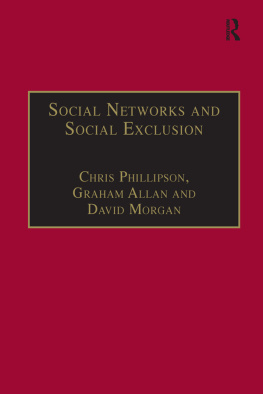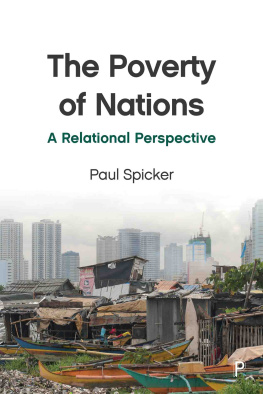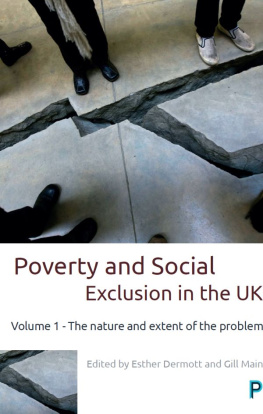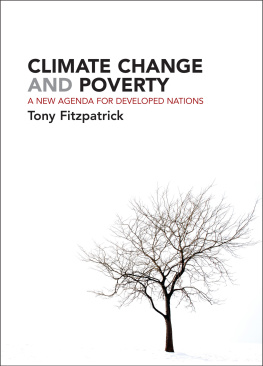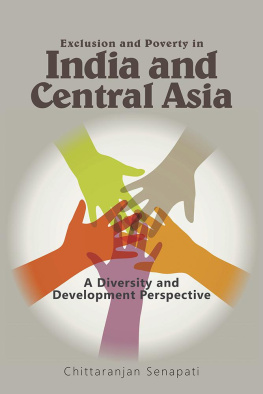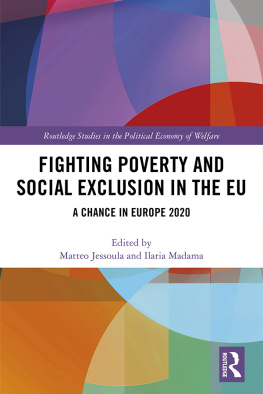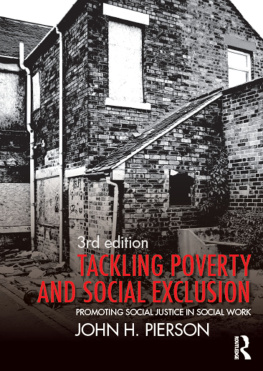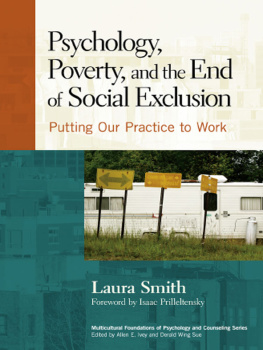Bramley - Poverty and Social Exclusion in the UK: Vol. 2
Here you can read online Bramley - Poverty and Social Exclusion in the UK: Vol. 2 full text of the book (entire story) in english for free. Download pdf and epub, get meaning, cover and reviews about this ebook. year: 2017, publisher: Policy Press, genre: Politics. Description of the work, (preface) as well as reviews are available. Best literature library LitArk.com created for fans of good reading and offers a wide selection of genres:
Romance novel
Science fiction
Adventure
Detective
Science
History
Home and family
Prose
Art
Politics
Computer
Non-fiction
Religion
Business
Children
Humor
Choose a favorite category and find really read worthwhile books. Enjoy immersion in the world of imagination, feel the emotions of the characters or learn something new for yourself, make an fascinating discovery.

Poverty and Social Exclusion in the UK: Vol. 2: summary, description and annotation
We offer to read an annotation, description, summary or preface (depends on what the author of the book "Poverty and Social Exclusion in the UK: Vol. 2" wrote himself). If you haven't found the necessary information about the book — write in the comments, we will try to find it.
Bramley: author's other books
Who wrote Poverty and Social Exclusion in the UK: Vol. 2? Find out the surname, the name of the author of the book and a list of all author's works by series.
Poverty and Social Exclusion in the UK: Vol. 2 — read online for free the complete book (whole text) full work
Below is the text of the book, divided by pages. System saving the place of the last page read, allows you to conveniently read the book "Poverty and Social Exclusion in the UK: Vol. 2" online for free, without having to search again every time where you left off. Put a bookmark, and you can go to the page where you finished reading at any time.
Font size:
Interval:
Bookmark:
IN THE UK
of disadvantage

A catalogue record for this book is available from the British Library
A catalog record for this book has been requested
978-1-4473-3427-9 paperback
978-1-4473-3426-2 ePdf
978-1-4473-3428-6 ePub
978-1-4473-3429-3 Mobi
Front cover image: Timm Sonnenschein/Report digital
Readers Guide
This book has been optimised for PDA.
Tables may have been presented to accommodate this devices limitations.
Image presentation is limited by this devices limitations.
Nick Bailey and Glen Bramley
Joanna Mack |
Demi Patsios, Marco Pomati and Paddy Hillyard |
Glen Bramley, Suzanne Fitzpatrick and Filip Sosenko |
Glen Bramley and Kirsten Besemer |
Lisa Wilson, Eldin Fahmy and Nick Bailey |
Nick Bailey |
Eldin Fahmy |
Lucy Prior and David Manley |
Glen Bramley |
Simon Pemberton, Christina Pantazis and Paddy Hillyard |
Glen Bramley and Kirsten Besemer |
Mike Tomlinson and Lisa Wilson |
Nick Bailey, Eldin Fahmy and Jonathan Bradshaw |
Glen Bramley and Nick Bailey |
Font size:
Interval:
Bookmark:
Similar books «Poverty and Social Exclusion in the UK: Vol. 2»
Look at similar books to Poverty and Social Exclusion in the UK: Vol. 2. We have selected literature similar in name and meaning in the hope of providing readers with more options to find new, interesting, not yet read works.
Discussion, reviews of the book Poverty and Social Exclusion in the UK: Vol. 2 and just readers' own opinions. Leave your comments, write what you think about the work, its meaning or the main characters. Specify what exactly you liked and what you didn't like, and why you think so.



